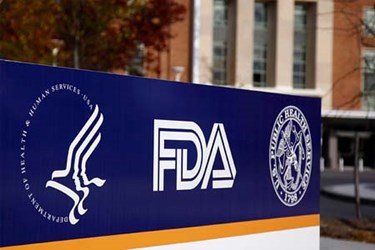FDA's PMA Approval Rate Soars To 15-Year High
By Jof Enriquez,
Follow me on Twitter @jofenriq

The U.S. Food and Drug Administration (FDA) approved 98 percent of premarket approval (PMA) applications in 2015, the highest rate in the last 15 years.
During fiscal year 2015, which ended on Sept. 20, FDA approved 98 percent of PMA applications – requests that cover high-risk medical devices – up from 86 percent in 2014 and from 70 percent in 2012, according to FDA figures cited by the Chicago Tribune. It is the highest PMA approval rate since 2001, and the first time in a decade that the approval rate hit at least 90 percent, which was last achieved in 2005.
PMAs also were processed faster this year, with an average time to decision at 262 days, the lowest since 2000, and substantially faster than last year's average of 432 days to decision, according to the FDA report.
For 510(k) applications covering less-risky medical devices, FDA says it approved 85 percent of all clearance applications, the highest rate since 2010. FDA also accelerated 510(k) approvals this year, when it took an average of 95 days for 510(k) applications to go through the agency, compared to 126 days in 2014.
For de novo requests, FDA took an average of 115 days to come up with a decision this year, faster than the 214 days it took them for each such request in 2014, and less than half the 258 days average time to decision in 2013, according to the report.
The report comes amid criticism that FDA's approval process continues to be slow and cumbersome, despite planned reforms. Medical device manufacturers have called on the FDA to accelerate device review times to get newer, life-saving products out to clinical settings. In response, FDA says it has instituted internal reforms to hasten regulatory approvals, and has touted official numbers to back up its claims.
"The approval percentages could help regulators combat that narrative," stated consulting firm PricewaterhouseCoopers in agreeing with the agency's findings, according to the Tribune.
Changes that FDA is either planning or currently implementing include streamlining clinical trials, gathering patient input in pre-market reviews, introducing an Expedited Access Pathway program for innovative devices that can address unmet needs, and proposing a National Medical Device Surveillance System (MDS).
"FDA's device program has evolved alongside changes in medical technology and in the global marketplace. The agency has implemented several new policies and programmatic improvements to ensure American patients have timely access to devices without compromising standards of safety and effectiveness," the agency wrote in a report earlier this year.
Pending legislation, particularly the 21st Century Cures Act, seeks to further speed the review of high-risk medical devices by relaxing pre-market clinical trial requirements, although some sectors believe this could pave the way for entry of unsafe products into the market.
